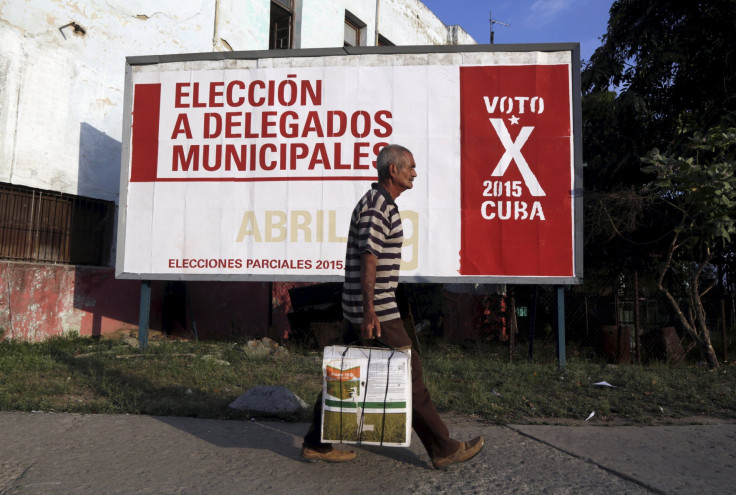Two Cuban Dissidents Hope To Make History In Municipal Elections

Two dissidents cleared a first round of voting to stand in Sunday's Cuban municipal assembly elections. If elected, they will be the first politicians in elected office from outside the Communist Party since the government passed its electoral law more than 40 years ago. But their candidacies alone are already sparking interest as questions arise over whether the Cuban government may be softening its grip on the political system.
“Though nothing comes of it, this is already an achievement,” said Hildebrando Chaviano, one of the candidates, in an interview with news agency Efe. “No one has ever reached this point.”
Chaviano also said he was trying to ride the momentum of progress in Cuba following its historic rapprochement with the United States.
“We have to take advantage of the moment. The same as Obama wanted, we have to move things a bit,” he told the Associated Press.
The other candidate, Yuniel Lopez, 26, is a member of the Independent and Democratic Cuba Party. Both Chaviano and Lopez secured endorsements for their candidacies in public meetings in March, Reuters reported. A total of 27,379 candidates are running for 12,589 seats in municipal assemblies.
Cuban political parties, including the Communist Party of Cuba, are prohibited from campaigning in elections. Candidates post their biographies in public places to showcase their backgrounds and secure votes. In recent weeks, Chaviano and Lopez said Cuban authorities changed their biographies to suggest they had ties to “counterrevolutionaries” abroad to hamper their chances.
Chaviano told the AP the government may just have been unprepared for the level of support he and Lopez received. But as President Raul Castro already has taken incremental steps toward liberalizing travel and operations in the private sector, some observers are also seeing this as a state move to relax its control over the electoral system.
“I believe that apart from this being a historic step, we will have support,” Lopez told Efe Saturday. But he added getting elected would be “more difficult” than the hurdles he has passed so far.
Raul Castro, who launched a slate of economic liberalization steps in recent years, had pledged to mount reforms to the electoral system, though he’s provided few details on what the reforms would be. Castro himself has said he would step down in 2018, and Vice President Miguel Diaz-Canel, 54, is widely expected to succeed him, paving the way for a new generation of political leadership.
The elections also come as the United States and Cuba are negotiating a host of issues that will allow them to reopen embassies in each other’s countries and restart diplomatic relations after a half-century hiatus. Last week President Obama supported a bid to take Cuba off the U.S. State Sponsors of Terrorism list, a decision that will face a vote in Congress in the coming weeks.
© Copyright IBTimes 2025. All rights reserved.






















